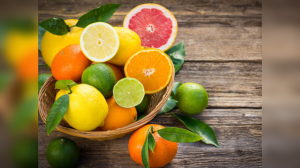That golden crunch of pakoras or crispy fries may be tempting, but here’s the hard truth: not every vegetable belongs in a deep fryer. Some lose their nutrients, some absorb oil like a sponge, and others even create harmful compounds when exposed to extremely hot oil. A 2019 paper published in Trends in Applied Sciences Research revealed that deep frying not only reduces the antioxidant power of vegetables but also increases the formation of acrylamide, a compound that the International Agency for Research on Cancer (IARC) has flagged as a possible carcinogen.
So while frying might give you flavour, it can also quietly take away the very health benefits you expect from your veggies. Imagine thinking you’re eating something “light” when, in reality, it’s stripped of vitamins and loaded with fat. Some vegetables are particularly prone to becoming unhealthy in the fryer, and knowing which ones to avoid can make all the difference.
BK Shivani on Spiritual Eating: Why Homemade Food Matters
In this article, let’s explore the vegetables you should never deep fry and discover smarter cooking methods that keep both taste and nutrition intact.
Why deep-frying vegetables is not always safe
Deep frying involves immersing food in oil heated to 170–190°C. At such high temperatures, moisture evaporates rapidly, creating the crisp outer layer we associate with fried foods.
But while the texture improves, nutrients often degrade. Vitamins such as C and some B-complex vitamins are heat-sensitive and get destroyed in hot oil.
Another issue is oil absorption. Many vegetables soak up large amounts of fat, making them heavy in calories. Over time, consuming such foods regularly can contribute to weight gain, high cholesterol, and cardiovascular problems. On top of that, when starchy vegetables are fried, they can form acrylamide, which adds a potential carcinogenic risk.
Vegetables you should not deep fry
Potatoes
Potatoes are the most common fried vegetable worldwide, but they’re also the riskiest. Their high starch content makes them prone to producing acrylamide when cooked at high heat. French fries and chips, in particular, contain elevated levels of this compound. Baking or air-frying potatoes provides a safer alternative that still delivers crunch without the excess oil and health risks.
Eggplant (Brinjal)
Eggplant behaves like a sponge when fried, soaking up huge amounts of oil. The result is a dish loaded with unnecessary fat and calories. On top of that, frying strips away many of the eggplant’s antioxidants. Roasting or grilling with a drizzle of olive oil preserves its fibre and beneficial compounds while keeping the dish light.
Okra (Ladyfinger)
Okra naturally contains soluble fibre and mucilage, both great for digestion and blood sugar control. Unfortunately, deep frying destroys much of these compounds and leaves behind a greasy vegetable with diminished nutritional value. Instead, steaming or pan-roasting okra retains its health benefits while keeping it tasty.
Tomatoes
Tomatoes are rich in vitamin C and lycopene, a powerful antioxidant. When deep-fried, however, they lose much of their vitamin C and become watery, absorbing unnecessary oil. A better option is to enjoy tomatoes raw in salads, lightly sautéed in sauces, or roasted slowly to bring out their natural sweetness without nutrient loss.
Leafy greens (spinach, kale)
Leafy greens don’t fare well in frying oil. They shrink rapidly, lose delicate vitamins like vitamin C, and end up absorbing unhealthy amounts of fat. Blanching, steaming, or stir-frying leafy greens is far more effective at preserving their nutrients and ensuring you still benefit from their fibre, iron, and antioxidants.
Smarter cooking alternatives
If you’re craving crispiness, there are healthier ways than deep frying. Air-frying is one of the most popular methods, using circulating hot air to achieve a fried-like texture with up to 80% less oil. Roasting vegetables with herbs and spices also adds flavour without the health risks, while steaming preserves water-soluble vitamins that frying usually destroys.
You can also try grilling, which brings a smoky taste without excessive oil absorption. Even a light stir-fry with minimal oil is a healthier choice compared to deep frying. These methods let you enjoy your vegetables while keeping their natural nutrients intact.
Deep frying may enhance flavour, but it often does so at the expense of nutrition. Potatoes, eggplants, okra, tomatoes, and leafy greens are best cooked using methods that maintain their vitamins and antioxidants rather than destroy them. By swapping frying oil for steaming, roasting, or air-frying, you can enjoy the same satisfaction while protecting your long-term health.
A small change in your cooking habits today can go a long way in ensuring your meals are both delicious and nourishing.
Disclaimer: This article is for general informational purposes only and is not a substitute for professional medical advice, diagnosis, or treatment. Always seek the guidance of a qualified healthcare provider regarding any medical condition or lifestyle change.
Also read| Skip samosas and vada pav after 6 pm and try healthier evening snack swaps, says Dr Pal






 Prithvi Shaw Admits to Losing Focus, Blames "Wrong Friends" for Career Setback
Prithvi Shaw Admits to Losing Focus, Blames "Wrong Friends" for Career Setback
 Test Your Vision: Can You Find All the Hidden Animals in This Viral Optical Illusion?
Test Your Vision: Can You Find All the Hidden Animals in This Viral Optical Illusion?
 7 Science-Backed Strategies to Naturally Elevate Oxytocin, the 'Love Hormone'
7 Science-Backed Strategies to Naturally Elevate Oxytocin, the 'Love Hormone'
 Azhar Mahmood Named Interim Test Coach for Pakistan
Azhar Mahmood Named Interim Test Coach for Pakistan
 Aamir Khan Details Underworld Invite to Dubai Party, Refusal Amid Family Safety Fears
Aamir Khan Details Underworld Invite to Dubai Party, Refusal Amid Family Safety Fears
 Smith Aims for Second Test Return After Unique Baseball Cage Training in NYC
Smith Aims for Second Test Return After Unique Baseball Cage Training in NYC
 Tiêu đề:
Unveiling the New 7 Wonders of the World: A Traveler's Guide to History's Greatest Masterpieces
Tiêu đề:
Unveiling the New 7 Wonders of the World: A Traveler's Guide to History's Greatest Masterpieces
 Foods to Avoid on an Empty Stomach: What Not to Eat First Thing in the Morning
Foods to Avoid on an Empty Stomach: What Not to Eat First Thing in the Morning
 Jury Begins Deliberations in Diddy Sex Trafficking Trial; No Verdict on Day One
Jury Begins Deliberations in Diddy Sex Trafficking Trial; No Verdict on Day One
 Sridevi's 'Laadla' Set Haunted by Late Divya Bharti's Unfinished Scene: Raveena Tandon Recalls Eerie Moments
Sridevi's 'Laadla' Set Haunted by Late Divya Bharti's Unfinished Scene: Raveena Tandon Recalls Eerie Moments